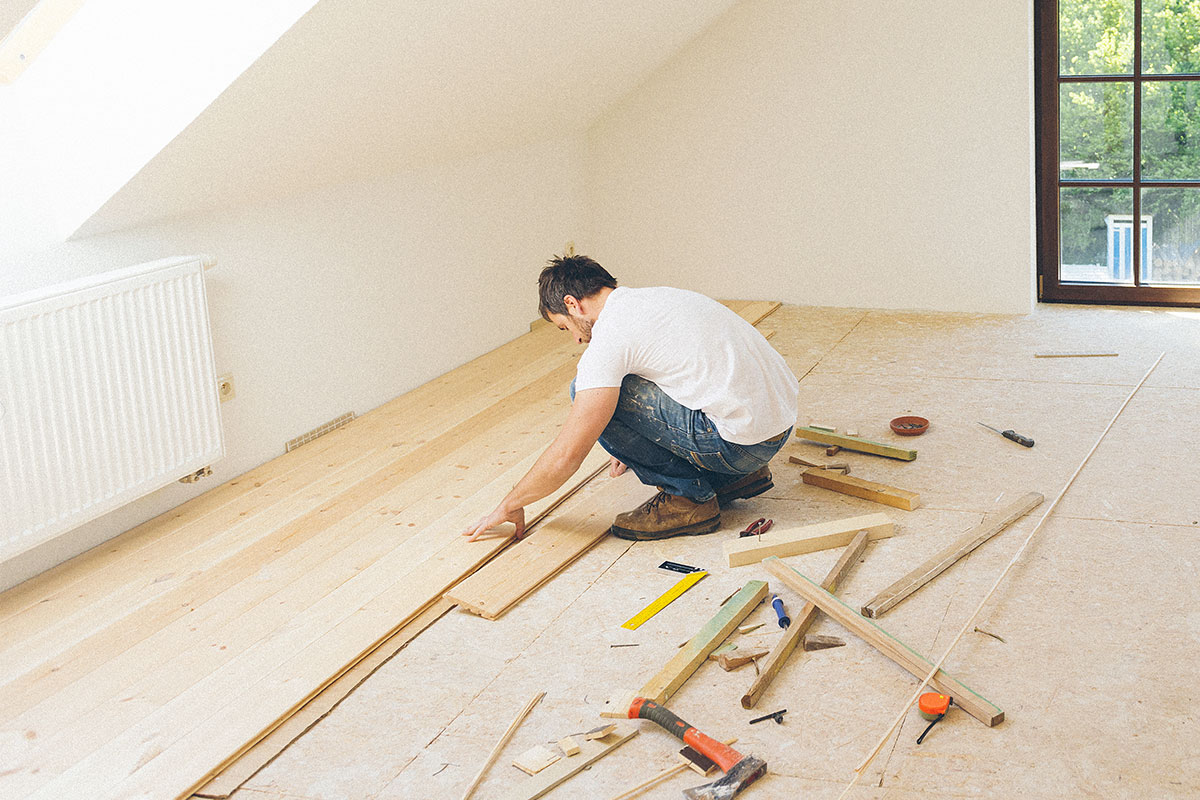
6 Steps to Take Before Applying for a Mortgage
Purchasing a home is an exciting process, but it can be complicated if you're unprepared.
Before you apply for your mortgage, you first need to learn how to prepare for a mortgage application. Be prepared for your first or next mortgage loan by following these six steps:
-
Determine how much house you can afford
Evaluate your financial situation. Mortgage lenders don't just look at your income and assets—they'll also look at liabilities and obligations like auto loans, credit card debt, child support, potential property taxes and insurance, and your overall credit score.
Many lenders follow the 28/36 rule, meaning your monthly mortgage shouldn't be more than 28% of your gross income, with overall recurring debt payments at no more than 36%. Use a calculator, like Mountain America Credit Union's mortgage qualifier, to determine how much you can comfortably borrow.
-
Get your credit score in tip-top shape
As mentioned, your credit score is one of the first things lenders review when deciding whether to approve or deny your mortgage application. Ensure your score is at its best before you apply.
First, check your score with all three major credit bureaus: Experian, TransUnion, and Equifax. You're allowed to check your score once a year for free from each of these companies. Most credit card providers and some financial institutions offer a complimentary check as well.
Though minimum credit scores vary depending on the type of loan you want, count on a minimum score of 500. For optimal interest rates, however, you should aim for 620 and above. If you're looking to improve your credit score, follow a budget, pay your bills on time, get rid of debt and avoid new debt. The latter two will improve your credit score and also lower your debt-to-income ratio.
-
Decide on a down payment
Once you know how much you can afford to borrow and what your credit score is, you'll need to decide how much you should put down.
Depending on the loan, there will likely be a minimum down payment. Count on paying at least 3% of the property’s purchase price—but aim for 20%. If you pay less than 20% upfront, you may have to pay private mortgage insurance or other fees and you may not get the most favorable interest rate. See how much you can put down with the money you have now and then continue saving toward a larger down payment while you house hunt.
-
Gather your documents
Obtaining a mortgage is a big step. Your lender will want to ensure your financial situation and identity are both in order.
Have ready the following documents needed to apply for a home loan:
-
Three months of pay stubs
-
W-2 forms (1–2 years' worth)
-
Three months of bank statements (checking and savings accounts as well as any stock accounts, 401(k)s or IRAs)
-
Tax filings from the past three years.
-
Multiple forms of ID, including your driver’s license, social security card or passport
-
-
Do your research
There is a lot you need to know before you officially apply for a mortgage. Ask yourself the following questions before making a final decision:
What type of mortgage is best for you?
There are multiple types of mortgages, which usually differ based on down payment size, personal qualifications or property type. Mountain America Credit Union has information on many different home loans to help you decide on the best one for your individual needs.
What’s the housing market like?
Get a better idea of what the real estate market looks like in your area. Find out about average property prices and the equity potential of your local market before moving forward with a mortgage. A real estate agent can also be a good resource.
Is this the right lender for me?
You've got your financials in order with the necessary documents. All you need now is the right lender. Find one that works well with you and your requests. Ask friends or family members about their experiences to help you find the best option.
Asking yourself these types of mortgage questions and taking the time to do the research now will pay off later—you'll be able to find the best lender and a loan with the best rate and terms for you.
-
Do your research
What does preapproval for a mortgage mean?
When you're preapproved for a mortgage loan, a lender verifies that you're approved to borrow an estimated amount of money during a certain amount of time. The preapproval process is similar to applying for a mortgage—you provide a lender financial and personal documents to authenticate your employment and income, and a lender checks your credit to determine the loan amount you can afford and the interest rate they can offer.
How long does it take to get preapproved for a mortgage?
Typically, it only takes a day or two to get preapproved, but sometimes it can take a couple of weeks or longer if issues arise while the lender is trying to verify all your information. Once preapproved, the lender will give you a preapproval letter, which is generally valid for 2–3 months.
No matter the time it takes, it's a good idea to get preapproved for a home loan. For starters, it helps you set a home-buying budget so you don't wate time looking at or bidding on houses you can't afford. It also makes you more appealing to sellers because you're already preapproved for the amount of money you're offering to pay, and you'll save time when you close on the house because you've already finished the closing and underwriting process with your lender.
Once you've completed these six tasks, you'll be well on your way to owning your first—or next—home. Apply for a mortgage today and let one of our home loan experts help you start the process of getting into your dream home.
Related Articles

5 Tips to Pay Off Your Mortgage Faster

